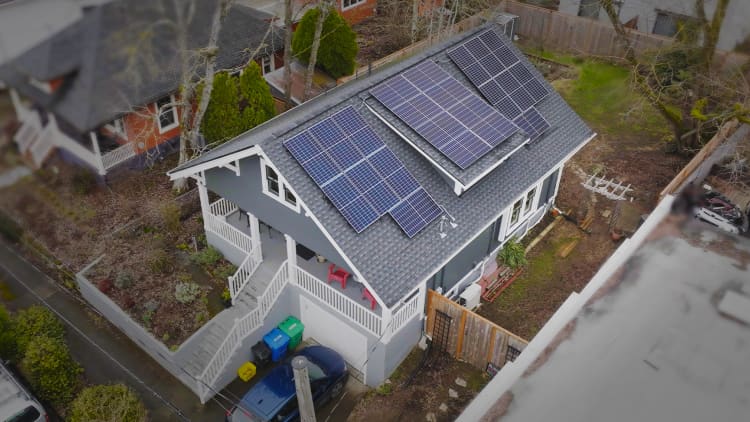Climate change is affecting people's decisions about where to work, what companies they buy things from — and how many kids to have.
More than half of parents, 53%, say that climate change affects their decision about having more children, according to a new survey.
Global research firm Morning Consult conducted the survey on behalf of computer tech company HP, polling more than 5,000 adult parents in India, Mexico, Singapore, the United States and the United Kingdom polled between May 18 and 26. About 1,000 parents in each of the five countries were surveyed.
Virtually all, 91%, of parents are concerned about climate change, the survey found. The particular effects they're concerned about include rising temperatures (62%), water shortages (51%), sea levels changing (43%), and large weather events (43%).
Parents say that concern about climate change is impacting their career decisions, too. More than four in ten, 43%, of survey respondents said they reconsidered working for a company due to the company's level of commitment to environmental and social issues, the HP study found.
A company's demonstrated actions to address climate change influence buying decisions, too. Almost two-thirds, 64%, of parents surveyed report they prefer products that are sustainably sourced and 60% of parents say that a company's sustainability practices play "a large part" in what they actually purchase.
Parents "are likely" to pay more for products that they know are more sustainable, the survey found. Willingness to pay more for sustainable products depends on the kind of product, the survey found: 75% of parents will pay more for sustainable clothing, 62% for pet supplies, 59% for tech purchases like laptops and 66% for cell phones.
That commitment to sustainable products comes at a time when 84% of parents say the general cost of living is rising and 57% of parents who say that it takes "a lot of time" to act in environmentally conscious ways, which included things like composting, recycling, purchasing products made with recycled materials and upcycling as opposed to throwing things away.
It is largely the responsibility of corporations to make good climate decisions, parents say. Just more than half, 51%, of parents say companies have "a lot" of responsibility to hold themselves accountable to do the right thing for the climate, and only 36% of parents say the responsibility to push companies to act sustainably lies with the customer.



